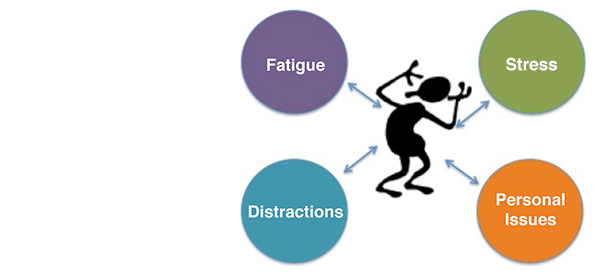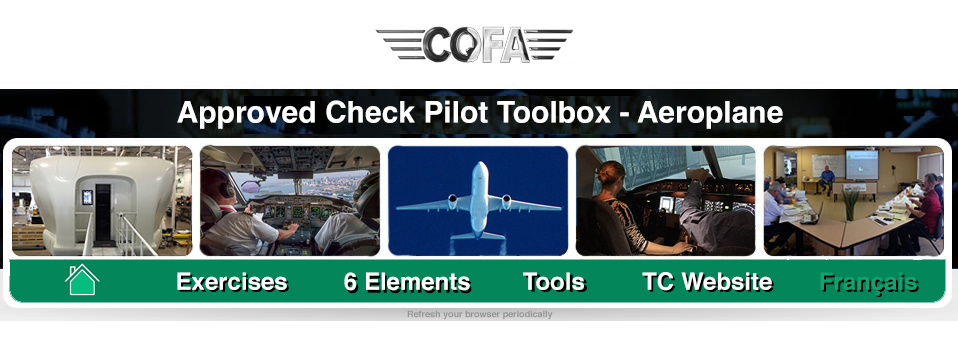ACP Course Syllabus
1. Structure and policies of the ACP program.
- Role of TC with regards to the management of the ACP program
- Legal and regulatory structure of the Act, the CARS, the Standards, and documents, such as Advisory Circulars, Aeronautical Information Manual (AIM), Canada Air Pilot (CAP), Canada Flight Supplement (CFS)
2. Scope and limitations of an ACP delegation of authority.
- Legal basis for delegated authorities
- Liability and conflict of interest issues with regards to external delegates
- Types of authorities
- In-depth knowledge validity periods and currency requirements
- In-depth knowledge of the limits of authority for each type of delegated authority
- Sample resume for ACP Application purposes
- Initial ACP delegation application form (Canada)
- Initial ACP delegation application form (Quebec Region)
3. Administrative recourses before the Transportation Appeal Tribunal of Canada.
- Role and functions of the TATC
- Proceedings involving the ACP program before the TATC
- Minimizing exposure to TATC hearings, such as accurate performance assessment and related comments, the conduct of the flight check in accordance with regulatory requirements and program policies, and the proper discharge of administrative responsibilities
![]()
4. Regulatory requirements pertaining to licensing, qualifications and validity periods.
- Structure of Parts IV and VII of the Canadian Aviation Regulations
- Part IV licensing requirements with regards to Instrument and Type Ratings
- Understanding the IFR validity provisions (tutorial)
- Part VII of the CARS and Commercial Air Services
- Standards (CASS) with regards to qualification requirements
5. Airspace Structure and Instrument Approach Design Criteria
- Airspace construction, PANS OPs versus TERPS
- Instrument Approach Design Criteria
- Enroute, terminal, and transitions
6. Non-technical, technical and flight standards
- NOTECHS including CRM and TEM
- Complete application of TEM in PPC/IFR
- Technical standards with respect to rules and procedures applicable to VFR and/or IFR flight, such as but not limited to controlled and uncontrolled airspace procedures, aerodrome and runway operations, instrument departure and arrival procedures, communication and reporting procedures, operating minima, considerations for altimeter settings, temperature and contaminants
- Technical standards with respect to instrument criteria in various phases of IFR flight
- Operational standards, as applicable to the appropriate subpart of the CARs, including operational and W&B control, aircraft performance and operating limitations, aircraft equipment requirements and the content of the applicable PPC schedules
7. Administrative and licensing procedures.
- Correct application of 26-0249/26-0279
- Correct application of 26-0083 for type and/or instrument ratings
- Correct application of validation of privileges
- Correct application of suspension of privileges
- Correct application of fee schedules
- ACP's monitoring process by TC, according to SI700-051 and SI700-002
8. Principles guiding the conduct and standards of flight checks.
- Philosophy and principles guiding the conduct of flight checks, including but not limited to the separation from training and company requirements
- Safety implications related to flight check
- Recommended briefing techniques and required content
- Evaluation techniques and factors that promote complete and consistent evaluations during the actual flight check, such as but not limited to the development and use of profile or scripts, pace of the flight check, control of the environment, note taking and the capture of strengths and weaknesses
- Traditional and C-A-L Directed Debriefing techniques
- Policies and procedures applicable to cases of unsatisfactory assessments, including the conditions that lead to the termination of a flight check, the administrative procedures to follow and the candidate’s right of appeal
9. Competency in the application of flight check standards.
- Characteristics that generate consistent evaluation
- Common evaluation errors
- The ACP's own Human Factors
- Assessment standards
- Performance criteria and tolerances
- Demonstrated ability to correctly assess technical and non-technical
- Demonstrated ability to draft accurate performance comments when required

10. Initial ACP Applicants: Ability to conduct a flight check.
Flight simulator exercises. Demonstrated ability to...
- Identify errors or shortcomings in the prerequisite paperwork
- Conduct a briefing appropriate to the type of commercial service
- Create and maintain a flight check environment
- Recognize technical errors as they occur during the flight check
- Assess the level of crew competency in CRM, TEM, NOTECHS
- Use the correct debriefing method
- Make an accurate pass/fail assessment
- Complete all administrative action
- Complete workshop on Comment Writing
__ CQFA: Training ACPs since 1990 __

